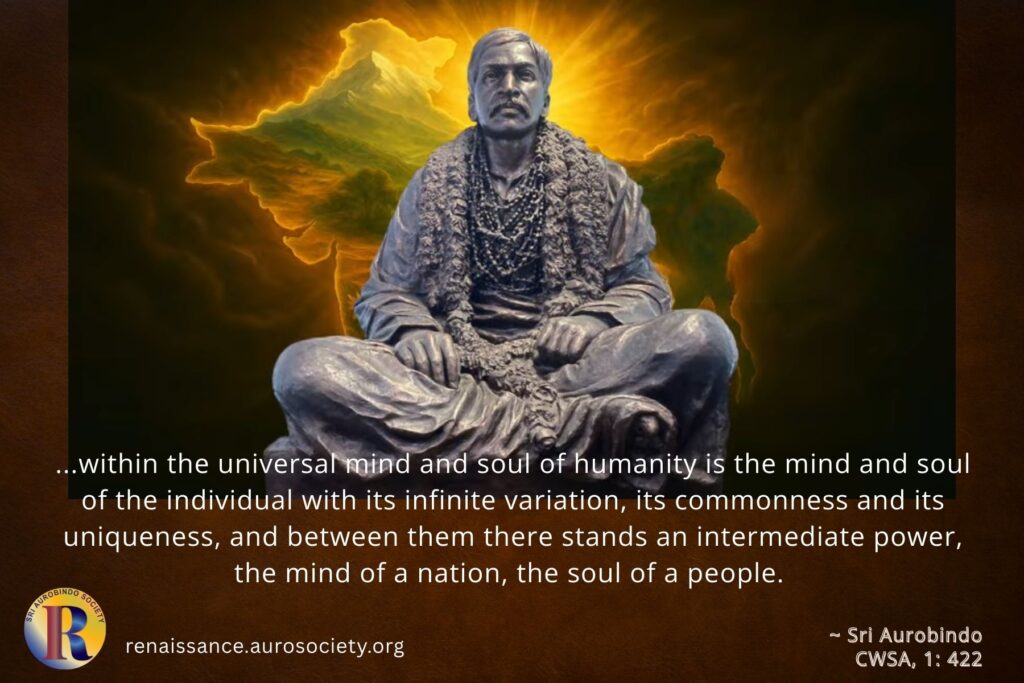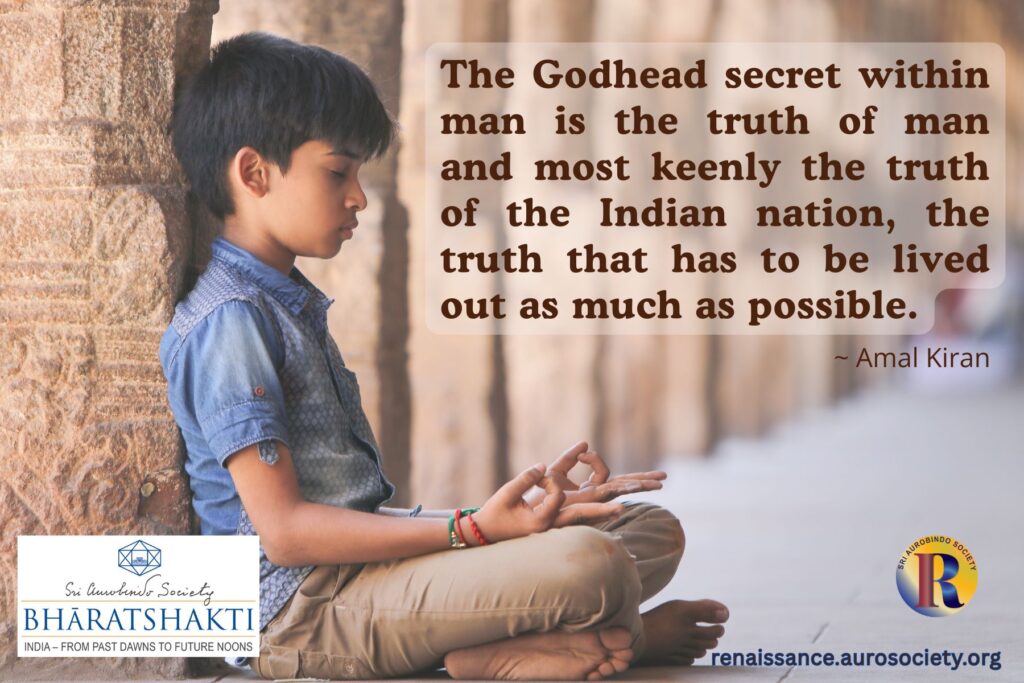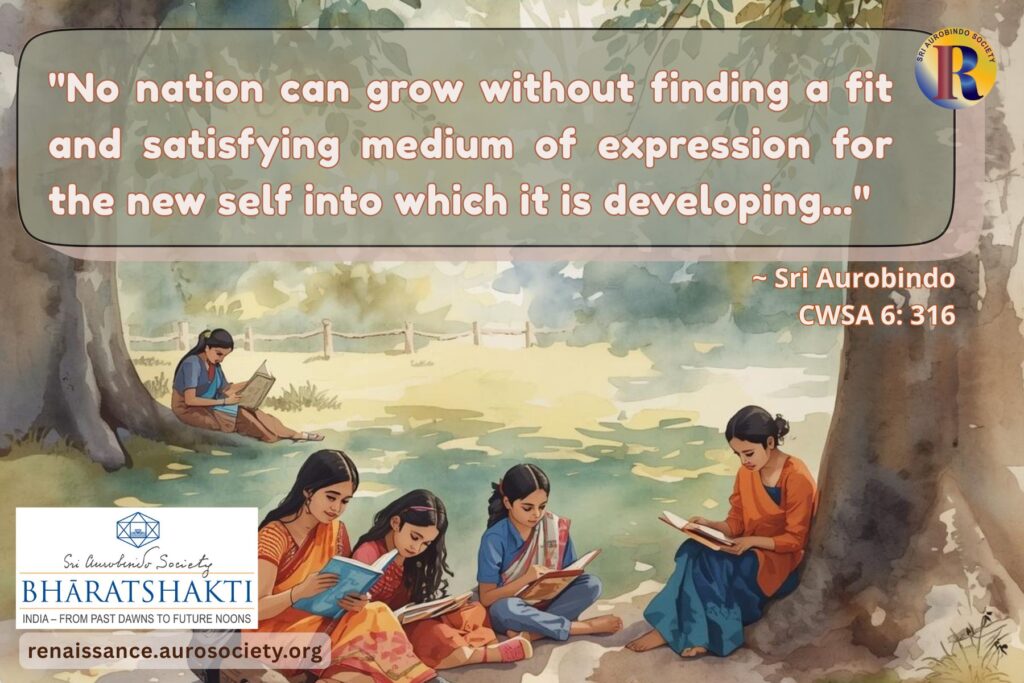Editor’s note: In this 2-part article, the author highlights what makes India’s nation-soul different from that of Europe. Using insights from Swami Vivekananda and Sri Aurobindo, the author emphasizes that it is this essential temperament of Indian nation which gives her a unique mission for the world and humanity.

As the different streams having their sources in different paths which men take through different tendencies, various though they appear, crooked or straight, all lead to Thee.
The present convention, is in itself a vindication, a declaration to the world of the wonderful doctrine preached in the Gita: “Whosoever comes to Me, through whatsoever form, I reach him; all men are struggling through paths which in the end lead to me.”
~ Swami Vivekananda at the World Parliament of Religions held at Chicago, 1893
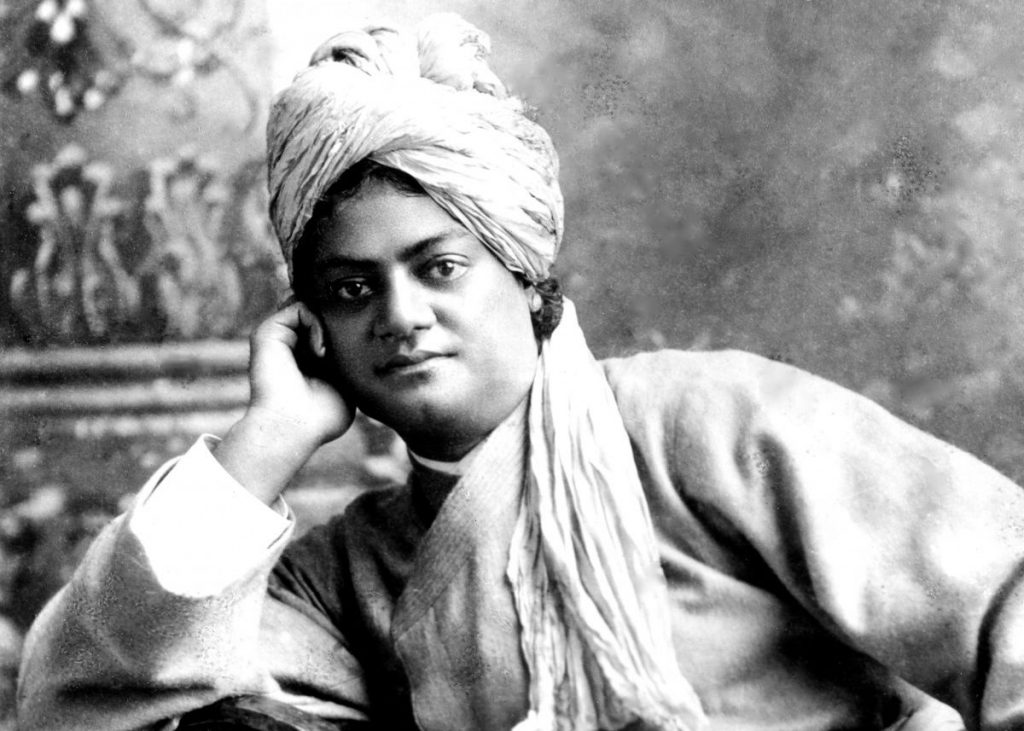
The single idea declared above by Swamiji speaks eloquently of the soul of India that is Bhārat.
The essential Indian spirit reminds us that we are all different rivers winding through our different ways. But we are ultimately moving towards the same goal, where all our diversities and discords get merged in the unity and harmony of the one ocean to which we all belong. We have to merge together because we all come from the same source.
Hinduism, the Mother of Religions
Swami Vivekananda after thanking the Parliament of Religions at Chicago in the name of “the mother of religions”, thundered on:
I am proud to belong to a religion which has taught the world both tolerance and universal acceptance. We believe not only in universal tolerance, but we accept all religions as true. I am proud to belong to a nation which has sheltered the persecuted and refugees of all religions and all nations of the earth.
I am proud to tell you that we have gathered in our bosom the purest remnant of the Israelites, who came to southern India and took refuge with us in the very year in which their holy temple was shattered to pieces by Roman tyranny. I am proud to belong to the religion which has sheltered and is still fostering the remnant of the grand Zoroastrian nation…
Yes, India is the only nation in the world where the Jews have never been persecuted. Ever.
The world is well aware of the long history of persecution in the hands of many nations, old and new. But Indian nation proudly stands as the sole exception where this tragic tale of persecution of Jewish people never played out.
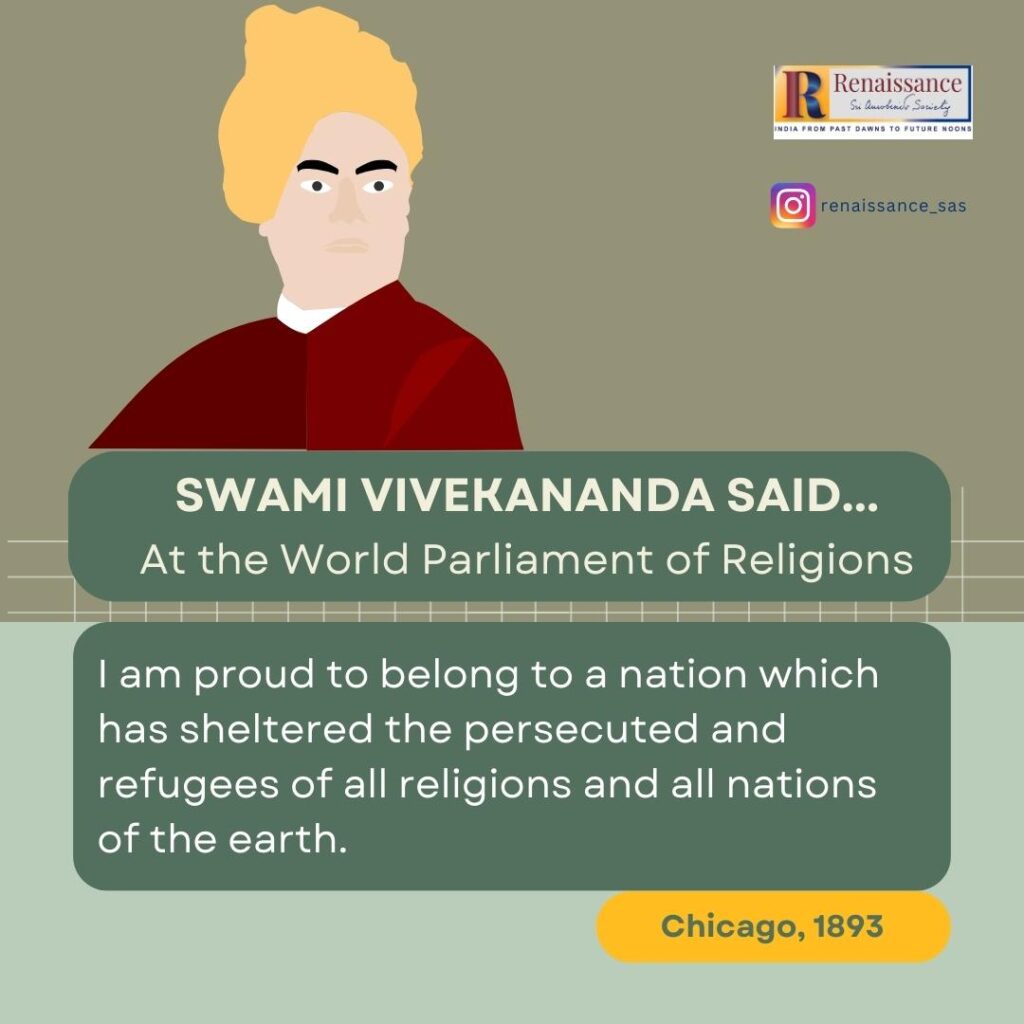
Of late, a lot of raucous voices are being raised about the rising intolerance amongst the Hindus. Those with nefarious political agendas are making allegations that minorities are being hounded and persecuted. They want to break the deeper unity of India by creating a false rhetoric that India is losing its secular character and other such things.
In one sense, it is a vicious campaign to malign the most peaceful, non-violent and tolerant community in the history of the world. India has the second largest population of Muslims in the world after Indonesia. Eleven percent of the Muslims of the world, live in India. And not only Muslims – every adherent of every religion – Jew, Christian, Buddhist, Jain, Bahai, Sufi, Zoroastrian, all have lived under the care of Mother India. They have pursued their faith in peace and harmony without any persecution for centuries.
There is no parallel in history of such inclusivity and assimilation.
India is home to half of the total population of the Zoroastrian religion; the other half is scattered over the rest of the world. The Parsi community in India still survives as a prosperous minority, though Zoroastrianism itself has been hounded out and erased from Iran – its place of origin, by Islam.
India is also home to the largest community of Bahais in the world. Forty per cent of the total Bahai population live in India. They too were driven out of Iran, the birthplace of the Bahai religion.
Half of the world’s Dawoodi Bohra community who themselves are Shia Muslims, but still face persecution in the hands of Sunni Muslims elsewhere, reside in peace in India.
In recent history when Communist China grabbed Tibet killing thousands of Tibetans, razed thousands of their Buddhist monasteries to the ground and crushed Tibet under its brutal boot, there was only one place for the Tibetans to go to: India. Indians have received them with open arms, given shelter and accepted them as their own brethren. And their religious leader, the Dalai Lama, enjoys a high level of reverence from the majority Hindu community and is a treasured citizen of India.
This has not happened anywhere else in the world.
What Makes India Unique?
Why is India the only country of its kind? Why is India so different from the other nations of the world? The simple and short answer is: India’s soul, her very essence is her Spirituality.
India lives in Spirit; Europe in its Vital. Sri Aurobindo describes eloquently:
The whole root of difference between Indian and European culture springs from the spiritual aim of Indian civilization.
It is the turn which this aim imposes on all the rich and luxuriant variety of its forms and rhythms that gives to it its unique character. For even what it has in common with other cultures gets from that turn a stamp of striking originality and solitary greatness. A spiritual aspiration was the governing force of this culture, its core of thought, its ruling passion.
~ CWSA, Vol. 20, p. 178
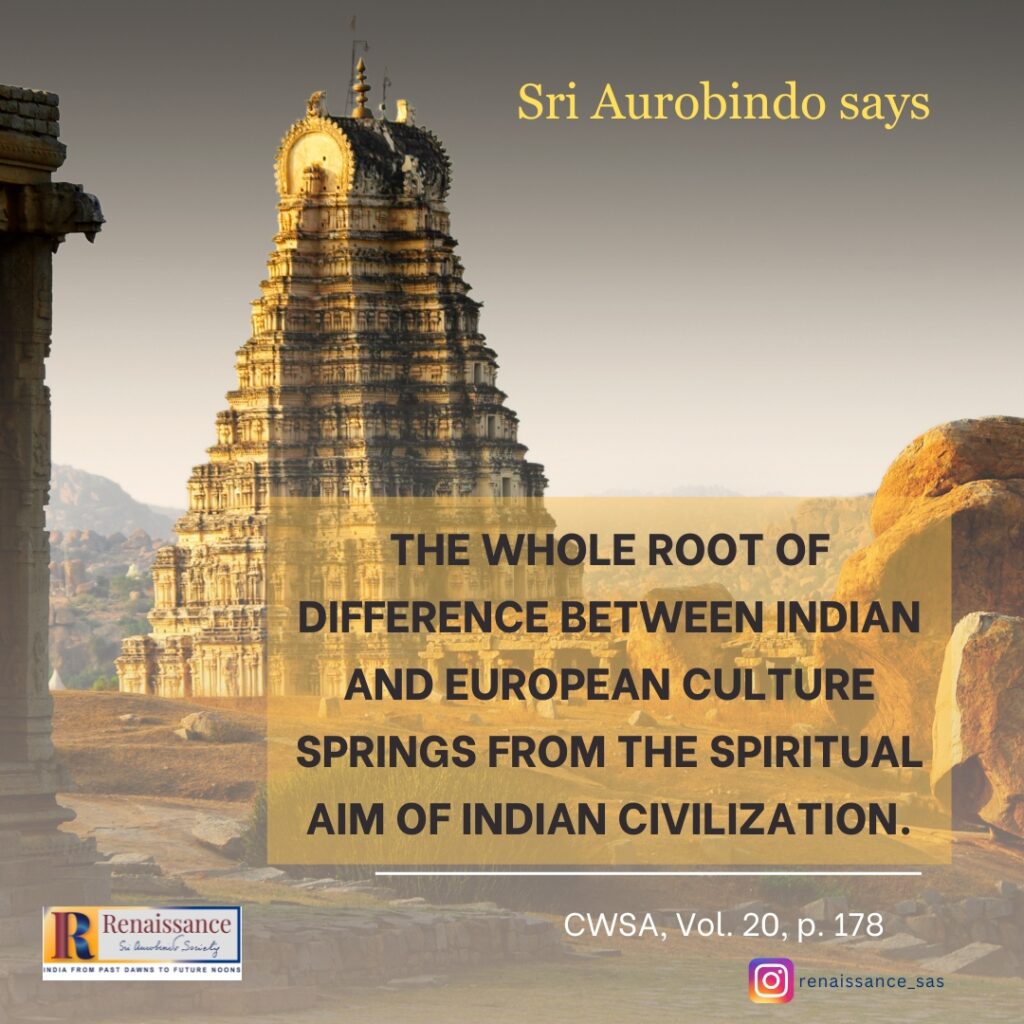
***
European civilization was founded on the passions of the vital being, and later on, its guiding light was the rational and scientific quest. But even when Europe marched ahead down the road of science and rationalism, since it had not addressed the pulls and passions of its vital being and had not transcended them, it ran headlong into the devastating orgies of the French Revolution, the two World Wars and the Holocaust.
Prior to the Age of Reason, even when Europe was holding aloft the banner of Christianity, Charlemagne had established the Holy Roman Empire and stamped the authority of Christianity on the face of Europe using force. And thereafter came the Crusades, the Spanish Inquisition and the Reformation. Then came the Peasants’ War and the Thirty Years War between the Catholics and the Protestants, all within the different fragments of the so called Holy Roman Empire.
Corresponding to the figure of Charlemagne as a king who built a religious empire we have a parallel figure in India of an emperor who had also built a religious empire: Ashoka. Charlemagne built his religious empire on the point of the sword; Ashoka built his Buddhist empire with the message of peace and Ahimsa.
Ashoka had also sent missionaries to the various countries of South and South East Asia – to Ceylon, Java, Sumatra, Thailand, Burma and Indonesia. After Ashoka’s death Buddhism spread northwards into Tibet, China and then on to Cambodia, Korea and Japan. Geographically, this is a phenomenally vast territory. But this holy empire of peace was established without shedding a single drop of blood!
Sri Aurobindo writes in this context,
At no time does India seem to have been moved towards an aggressive military and political expansion beyond her own borders; no epic of world dominion, no great tale of far-borne invasion or expanding colonial empire has ever been written in the tale of Indian achievement.
The sole great endeavour of expansion, of conquest, of invasion she attempted was the expansion of her culture, the invasion and conquest of the Eastern world by the Buddhistic idea and the penetration of her spirituality, art and thought-forces.
And this was an invasion of peace and not of war, for to spread a spiritual civilization by force and physical conquest, would have been uncongenial to the ancient cast of her mind and temperament and the idea underlying her Dharma.
~ CWSA, Vol. 20, pp. 426-427
This is the essential difference between the spirit of Europe and the spirit of India.
And why did Europe employ war and violence to establish an empire in the name of Jesus Christ who preached nothing but peace and Ahimsa, just like Buddha? Sri Aurobindo gives the answer in his book The Human Cycle:
She [Europe] had mistaken her vital ego for herself; she had sought for her soul and found only her force. For she had said like the Asura, ‘I am the body, my life, my mind, my temperament,’ and became attached with a Titanic force to these; especially she had said, ‘I am my life and body,’ and than that there can be no greater mistake for man or nation.
The soul of man or nation is something more and diviner than that; it is greater than its instruments and cannot be shut up in a physical, a vital, a mental or a temperamental formula.
~ CWSA, Vol. 25, p. 42
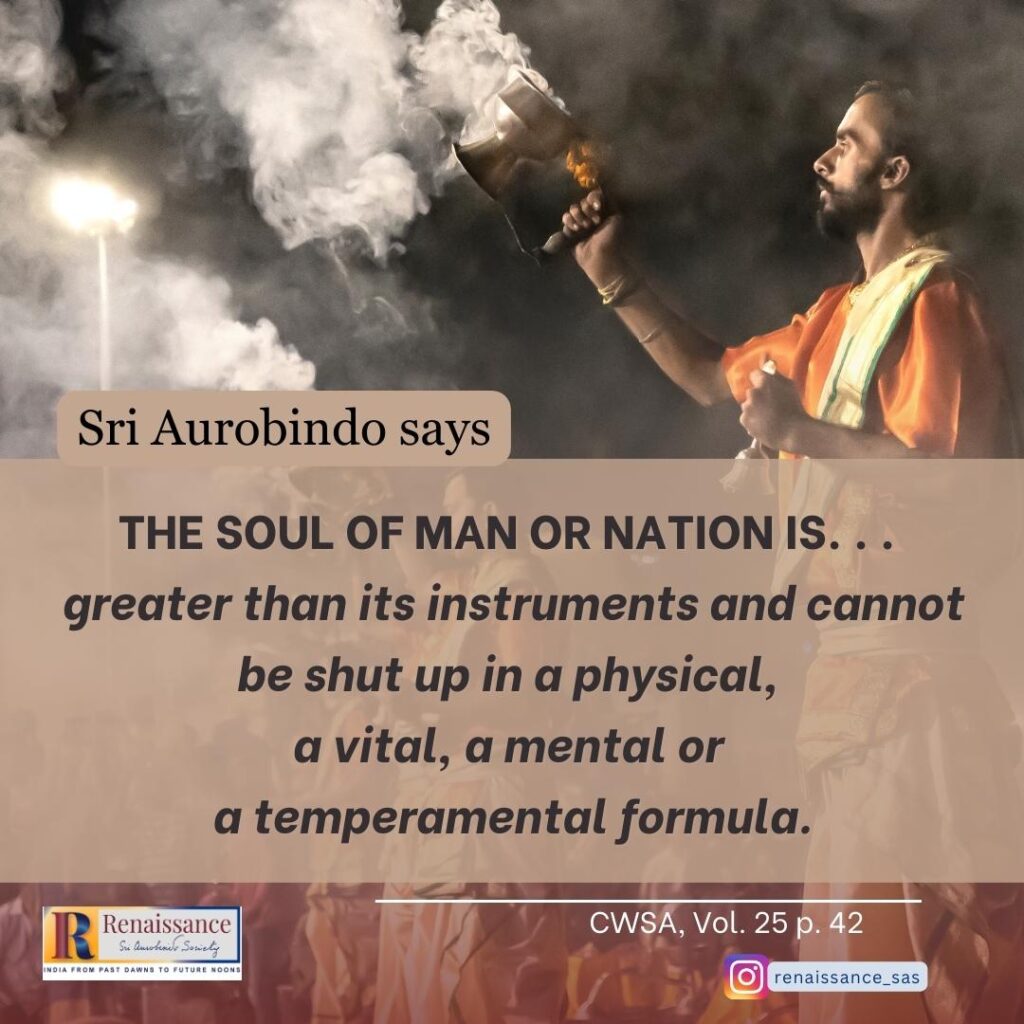
Continued in PART 2
~ Design: Beloo Mehra

